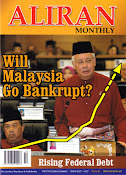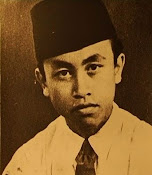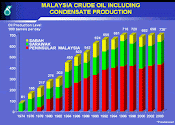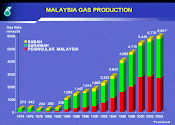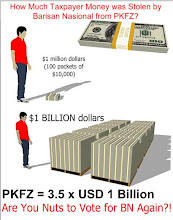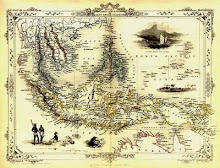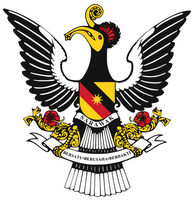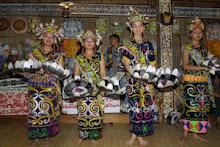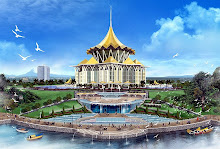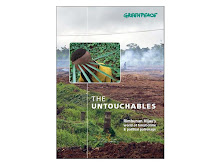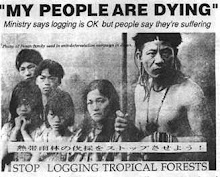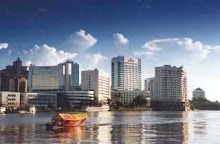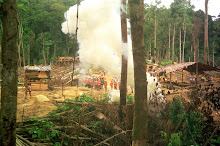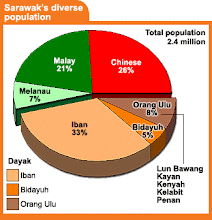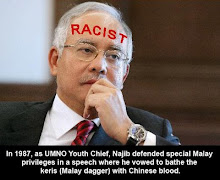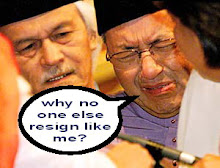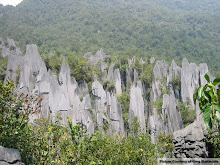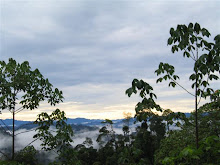Taken as a whole, the 20 Points, if read in their entirety, give the East Malaysian states considerable political autonomy. However, the public view in East Malaysia is that there has been considerable dilution of the 20 Points for the past 45 years.
By James Chin, The Borneo Post
EAST Malaysia is very much in the news lately. With more than a quarter of MPs coming from there, it is generally acknowledged that they were the key to Barisan Nasional’s continued hold on power.
Since March 8, MPs and other politicians from Sabah have grown more vocal about the ‘neglect’ of East Malaysia since independence, making subtle references to the possibility that they could easily switch their support to Pakatan Rakyat if the federal government does not resolve their grievances.
There are several main grievances and their resolution may not be forthcoming in the short term.
The first issue is the date of independence. In the peninsula, independence is often taken to be 1957 when self-government was put in place. In East Malaysia, they see the proper date of independence as 1963 when the Federation of Malaysia was established.
Additionally, there is some unhappiness with the term Sabah and Sarawak ‘joining’ Malaysia when in fact Malaysia did not exist before 1963. For East Malaysians, Sabah, Sarawak, Singapore and Malaya came together as equal partners to form the Federation of Malaysia. Using the term ‘join’ implies that East Malaysia joined an existing political entity as junior partners.
The second big issue is the federal government’s commitment to a set of state rights guarantees attached to the Malaysia Agreement, commonly referred to as the ‘20 Points’.
Among the key points were:
• Islam’s status as the national religion was not applicable to East Malaysia;
• Immigration control was vested in the state governments;
• Borneonisation of the civil service would be a high priority and English can be used as an official language;
• No changes to the ‘20 Points’ guarantees can be made without the agreement of the Sabah and Sarawak state governments. A clause was inserted giving all the parties the right to review the 20 Points after 10 years, ie, 1973.
• The natives of East Malaysia would be on par with the Malays and other indigenous groups in the peninsula, ie full Bumiputera status.
Taken as a whole, the 20 Points, if read in their entirety, give the East Malaysian states considerable political autonomy. However, the public view in East Malaysia is that there has been considerable dilution of the 20 Points for the past 45 years.
For Sabahans, the issue of immigration control is widely seen as a joke given the large number of illegal migrants in the state. Depending on who you talk to, the number of illegals in the state is between 1-1.5 million.
Combined with ‘legal’ immigrants, those who managed to get IMM13 certificates or MyKad, the number of non-Sabah born residents may actually be equal to the local born.
Official government statistics showed that one quarter of the state’s population is now made up of foreigners and that since 1963, the state’s population has increased by more than 300 per cent! This sort of increase can only happen with some sort of official collaboration at the highest level in Putrajaya.
Hence the call for a Royal Commission to get to the bottom of the infamous ‘Project IC’. The make-up of the civil service is also a sore point.
While it is true that both states have their own civil service, it is also true that since independence, more and more functions of the state civil service have been transferred to the federal service.
There is popular perception that non-Muslim Bumiputera (NMB) civil servants from East Malaysia are being discriminated in terms of recruitment and promotion.
Then there are Bumiputera rights.
There is widespread feeling among the NMB of East Malaysia, despite being the majority numerically in both states, are treated as ‘third class’ Bumiputera when it comes to government help.
The unhappiness across the board on subjects such as jobs in the civil service, Public Services Department overseas scholarships, business licences and government procurement contracts.
They also feel that their language and culture is relegated to ‘second class’ when compared to Malay culture and Islam.
The official culture promoted is based largely on the Malay and Islamic cultures although the rhetoric is otherwise.
Moreover, many in East Malaysia are unhappy that government-supported cultural groups mismatch their traditional costumes by ‘modernising’ them with new colours and patterns. The same applies to traditional dances.
Until recently, there were cases of East Malaysian Bumiputeras denied the housing discount when they buy property in the peninsula.
In Sabah, the NMB unhappiness is compounded by the large number of foreigners holding MyKad and IMM3. Almost all these new ‘Malaysians’ are Muslims and NMB leaders suspect that there is a conspiracy to dilute the numerical superiority of NMBs.
It is no secret that the federal government was unhappy with Parti Bersatu Sabah (PBS) for most of the 1980s to the early 2000s.
PBS came into power largely on NMB and Chinese votes.
A former Sabah chief minister has said openly that the Kadazans will never achieve power again because of official policy to raise the number of Muslims in Sabah.
Fifth, overall there is also a widespread perception that East Malaysia contributes more to the federal coffers than what is given back in development grants.
There are still thousands of rural people in both states with no access to clean water and electricity.
Official statistics showed Sabah as persistently having one of the highest poverty rates in the country.
Yet Sabah and especially Sarawak contributed billions to the federal coffers through oil and gas revenue.
Many think that the 5 per cent royalty is an insult, and even the 20 per cent offered by the opposition is inadequate.
Many want at least 50 per cent.
That may sound like a lot, but given the under-development since independence, it does not sound so unreasonable if you are from Sabah or Sarawak.
Sixth, perhaps the greatest problem is the loss of political autonomy.
When Umno and other BN parties moved into Sabah in 1990, it signalled the end of Sabah political autonomy.
From 1994, all Sabah chief ministers were selected based on the strength of their ‘cables’ with Kuala Lumpur.
In Sarawak, since the direct federal intervention to remove the chief minister in 1967, all chief ministers are known to have served at the federal level.
One of the greatest fears among Sarawakian politicians is the entry of Umno into the state.
There is every reason to believe that this will happen sooner rather than later.
Sarawakians have seen how BN parties have created political upheavals among the Sabah population, and they are not impressed.
Recent gestures by the prime minister, such as appointing a Sabahan as Dewan Rakyat Speaker, more development funds and appointing East Malaysians to senior positions in the bureaucracy are unlikely to end the unhappiness, which has simmered for three decades.
It cannot be undone in a matter of months.
In summary, what East Malaysians want is respect for political autonomy as promised in the 20 Points, a respect for the different history, understanding of the plural settings, and a helping hand to bring development on par with peninsula states.
It’s as simple as that. While the political realities dictate that political autonomy will have to go if we want closer relations, simply exporting the peninsula’s ethnic politics model to East Malaysia will spell only trouble.
James Chin is Foundation head, School of Arts and Social Sciences, Monash University, Malaysian Campus


